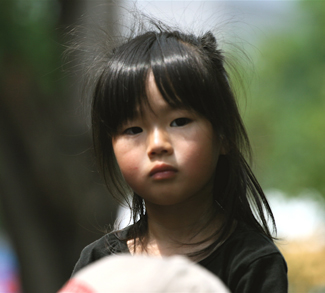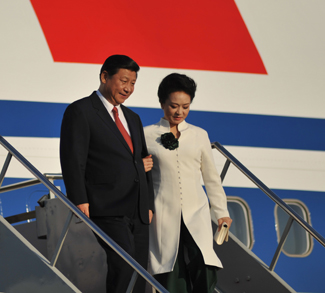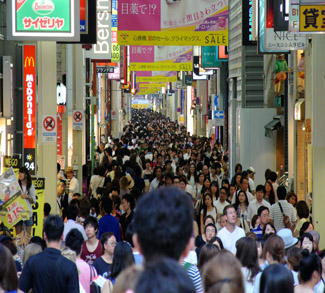The trend of a rapidly dwindling population is the most serious challenge that Shinzo Abe will face in his third-term as prime minister of Japan. Yet this phenomenon is a direct outcome of the development model Japan has chosen for itself, one where a great majority of the country’s women have lost the urge to have a healthy sex life and rear children. By the end of the previous decade, Japan’s population had peaked at the whopping 128 million mark. But by 2015, the country had lost one million people, and in 2016, Japan recorded less than one million new births for the first time in its history.
This is no sudden development. The country now has 40 percent less newborn children than in 1949; it has been a long and gradual decline.
With an average life expectancy of 87 years, Japan is now the most senior citizen of the world. But it has been estimated that with its low birth rate, the population of the country could drop to as low as 80 million by 2060. This is sure to have a catastrophic bearing on the national economy and finance as social security has already been consuming one-third of budget spending and public debt has reached a level of more than double of Japan’s GDP.
But why is the population of Japan shrinking so rapidly? The simple answer is that a large number of Japanese males and females are not interested in sex at all, which is otherwise part and parcel of the life of a normal human being. This is a direct outcome of the high-speed capitalist development model that Japan has adopted since the end of WWII. Too much workload, fatigue, and very little social security have resulted in men and women losing the will to procreate.
As a corollary to this, the institution of family has come under threat. Various other social and psychological factors are also standing in the way of population increase. According to a survey from Japan’s National Institute of Population and Social Security Research (NIPSSR) released last year, 70 percent of unmarried men and 60 percent of unmarried women in the 18-34 age group are not in any kind of romantic relationship. Moreover an earlier NIPSSR survey revealed that 90 percent of Japanese women want to stay single. The figure becomes more revealing when one takes into account that 70 percent of women leave their jobs after the birth of their first child. Not that the Japanese ladies do this gladly. But they have to accept such an eventuality because they get very little maternity security raising their child, from neither the state nor their employers. The end result is that they are gradually losing the will to marry.
If Japan is to survive as a nation, then birth rates per woman need to rise to at least 1.8 from the current rate of 1.4.
This trend is a direct threat to Japan’s future because the country still cherishes traditional values and births outside of marriage are rare. So there shouldn’t be much surprise in the fact, as brought out by another NPSSR survey, that 68 percent of Japanese women in the age group 18-19 years have no sexual experience. This tallies with the traditional East Asia value system. But as one moves toward higher age groups, surprises come to the fore. Strange as it may sound, but sex is not a favored word with a large segment of Japanese women nowadays. To understand this trend, we can fall back upon an earlier survey from the Japan Family Planning Association (JFPA). The figures are revealing. How can one explain the finding of the JFPA survey that 46 percent women in the age group 16-25 years are not interested in sex? Only 29.3 percent of never married women aged 25-29 have had sex and the corresponding figure for women aged 30-34 is 23.8 percent. And here lies the real threat to Japan: when women belonging to the 20-34 age group, the most virile time in any man or woman’s life, become disinterested in having a sex life and procreating, the country may find itself in social and economic turmoil in the near future.
So sex and marriage are gradually on their way to becoming taboos in Japan. There are reasons behind it. Performance-driven Japanese society have made its men and women workaholics. They tire themselves out from 9 AM to 5 PM. Then there are regular overtimes until 7 PM. After that there is another two hours of socialization. So when they come back to their residence they are totally exhausted.
So it is not surprising that fatigue has weighed upon 21.3 percent of men and 17.8 percent of women and contributed to their growing distaste for sex. For 23.8 percent of women, sex is now a bothersome thing and 15.7 percent men are not interested in it after the birth of their first child.
A grim battle lies ahead for Shinzo Abe. If Japan is to survive as a nation, then birth rates per woman need to rise to at least 1.8 from the current rate of 1.4. Already 27.7 percent of Japan’s population is 65 or older and by 2060 they will constitute 38 percent of the population. So there will not be enough able bodied people to keep the economy going, let alone produce surplus growth.
Shinzo Abe has introduced several policies to cut down excessive working hours. He has also taken some steps to provide child care facilities in order to encourage women to fill up vacancies in the country’s number of workforce. But the progress is still far from satisfactory if an economic crisis is to be averted.




